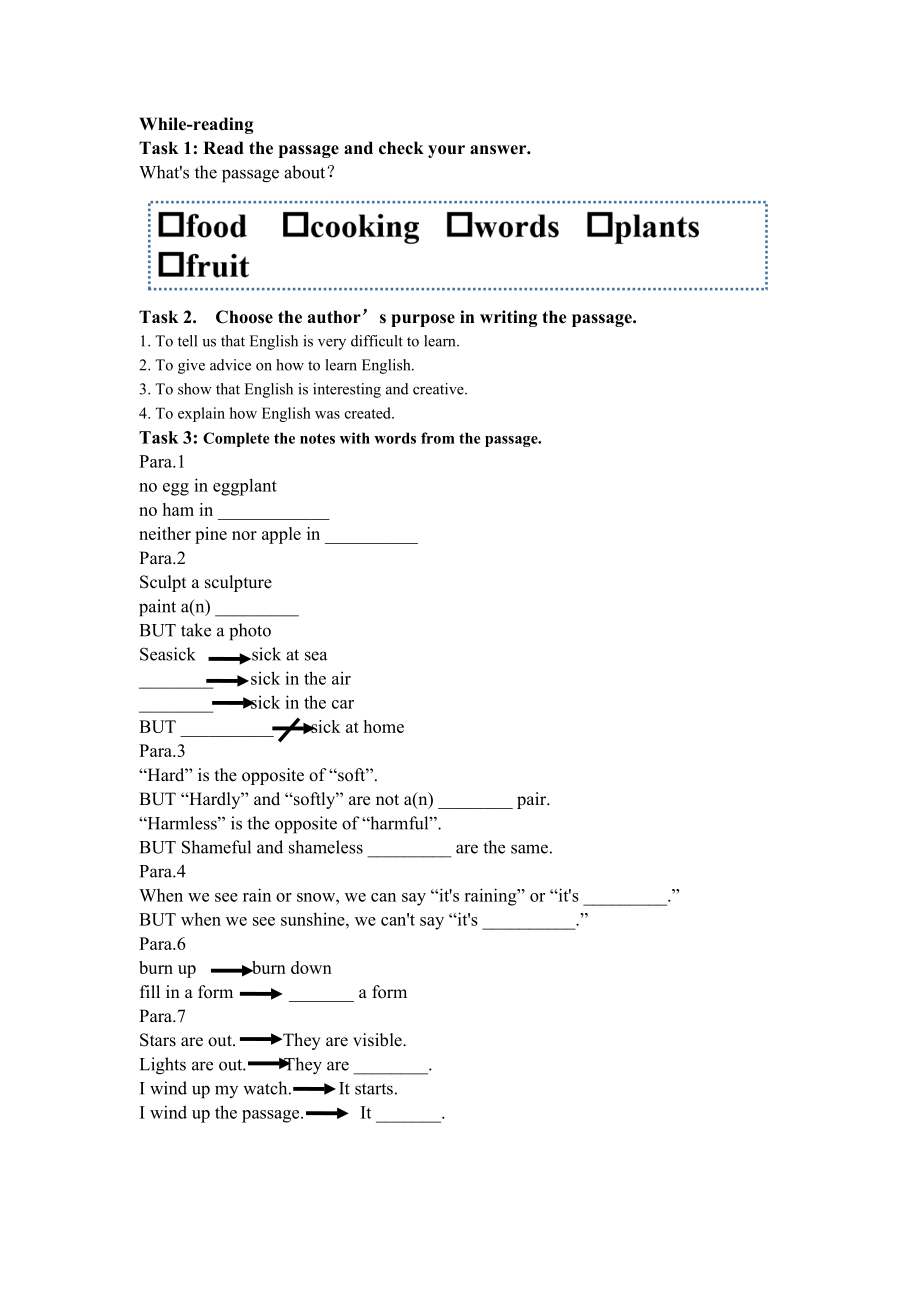《外研版(2019) 必修第一冊(cè) Unit 2 Exploring English Understanding ideas學(xué)案》由會(huì)員分享���,可在線閱讀����,更多相關(guān)《外研版(2019) 必修第一冊(cè) Unit 2 Exploring English Understanding ideas學(xué)案(2頁珍藏版)》請(qǐng)?jiān)谘b配圖網(wǎng)上搜索。
1���、While-reading
Task 1: Read the passage and check your answer.
What's the passage about����?
Task 2. Choose the author’s purpose in writing the passage.
1. To tell us that English is very difficult to learn.
2. To give advice on how to learn English.
3. To show that English is interesting and cr
2�、eative.
4. To explain how English was created.
Task 3: Complete the notes with words from the passage.
Para.1
no egg in eggplant
no ham in ____________
neither pine nor apple in __________
Para.2
Sculpt a sculpture
paint a(n) _________
BUT take a photo
Seasick sick at sea
_______
3、_ sick in the air
________ sick in the car
BUT __________ sick at home
Para.3
“Hard” is the opposite of “soft”.
BUT “Hardly” and “softly” are not a(n) ________ pair.
“Harmless” is the opposite of “harmful”.
BUT Shameful and shameless _________ are the same.
Para.4
When we see rai
4��、n or snow, we can say “it's raining” or “it's _________.”
BUT when we see sunshine, we can't say “it's __________.”
Para.6
burn up burn down
fill in a form _______ a form
Para.7
Stars are out. They are visible.
Lights are out. They are ________.
I wind up my watch. It
5�、 starts.
I wind up the passage. It _______.
Task 4:Fill in the blanks and try to retell the Neither Pine nor Apple in Pineapple.
After-reading
Discussion
Read the following information and discuss with your partner.
1. How did pineapples, hamburgers and eggplants get their names
6、?
2. Does the information above give you a better understanding of the passage? Give your reasons.
Think and Share
1. Do you agree with the author’s opinion about the English language? Give your reasons.
2. What do you find most challenging about learning English? How do you deal with this?
 外研版(2019) 必修第一冊(cè) Unit 2 Exploring English Understanding ideas學(xué)案
外研版(2019) 必修第一冊(cè) Unit 2 Exploring English Understanding ideas學(xué)案

